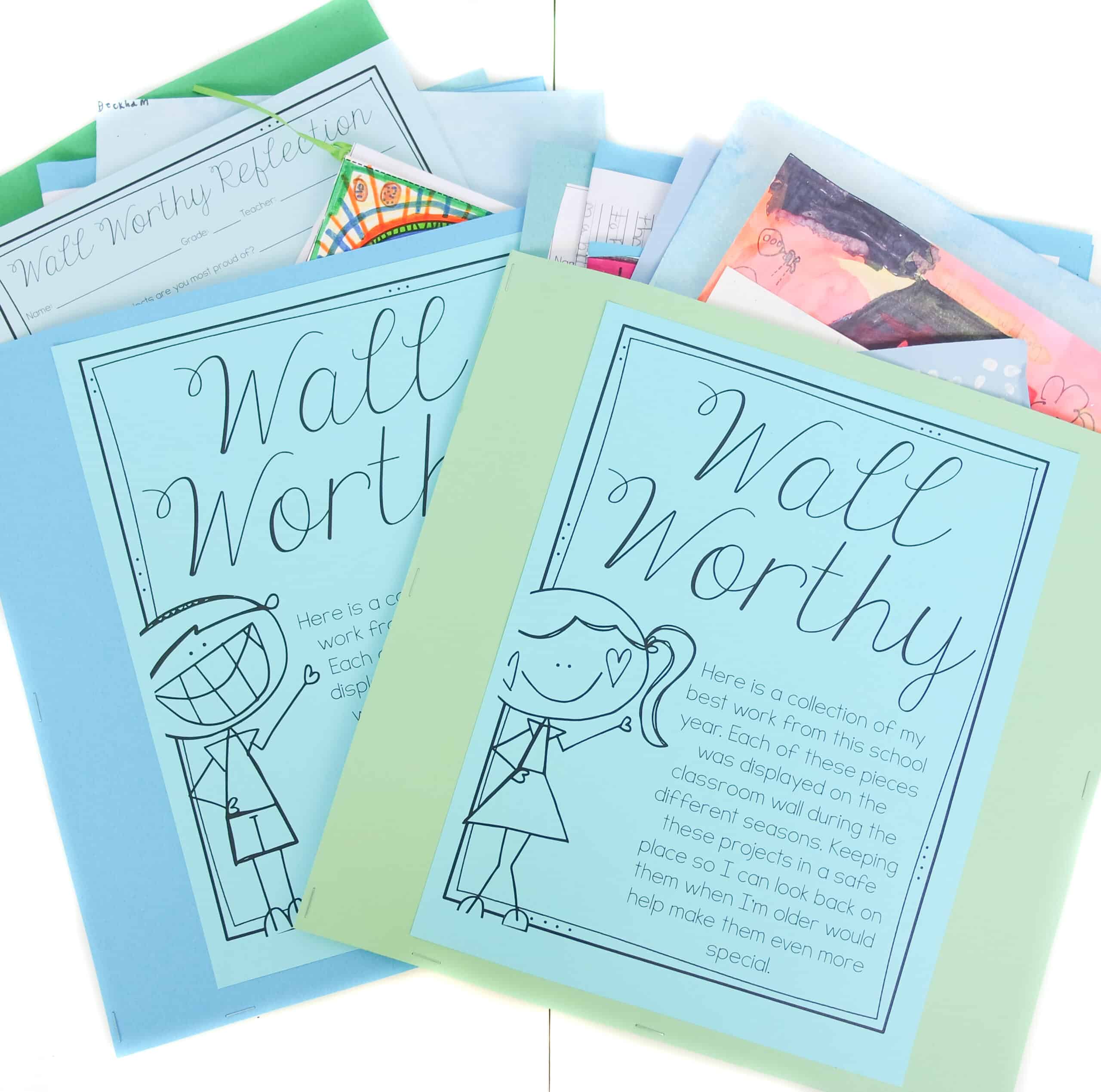
Communicating student progress is important. It can also be quite a challenge when using a workshop approach for teaching and learning. This is because the deeper learning students are engaged in builds on itself and isn’t a simple worksheet you score and send home. Workshop activities often need to be kept in the classroom for the duration of a unit so students can refer to their work and build on their learning.
So how do you keep parents in the loop with what their child is learning and how they are progressing? Here are five tools that can help you do just that.
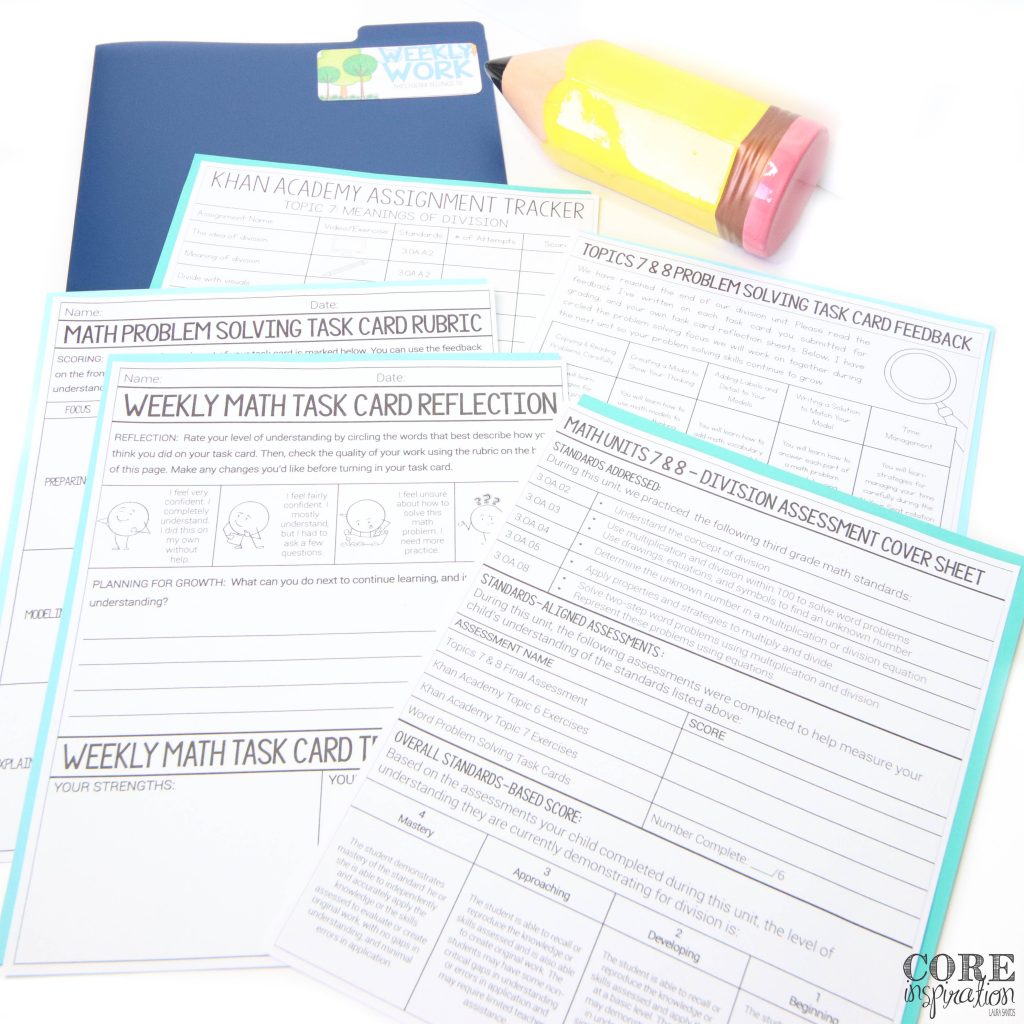
At the end of each week send a newsletter that includes a list of what students are learning during workshop along with dinner table conversation prompts that help parents gain insight about their child’s understanding of those learning topics.
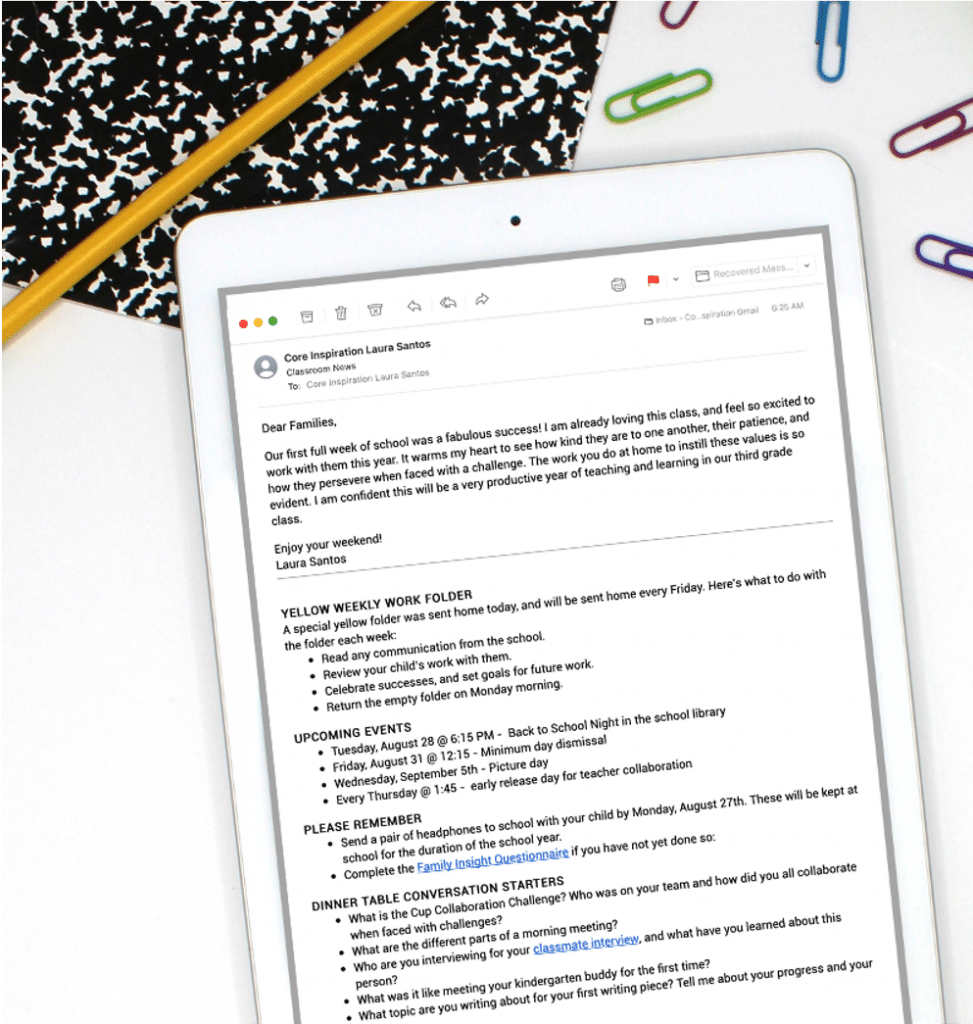
For example, if you are currently teaching metric measurement in your third grade classroom, you might have conversation prompts like:
Sending updates and prompts like these on a weekly basis builds the home-school connection and provides parents with support when talking to their child about learning rather than defaulting to the generic, “What did you do at school this week?”
During each workshop unit, file any scored work in student portfolios and share that work with parents at the end of the unit. Depending on the grade you teach, you may keep the portfolios in a central location in the classroom, or having students keep their own portfolio.
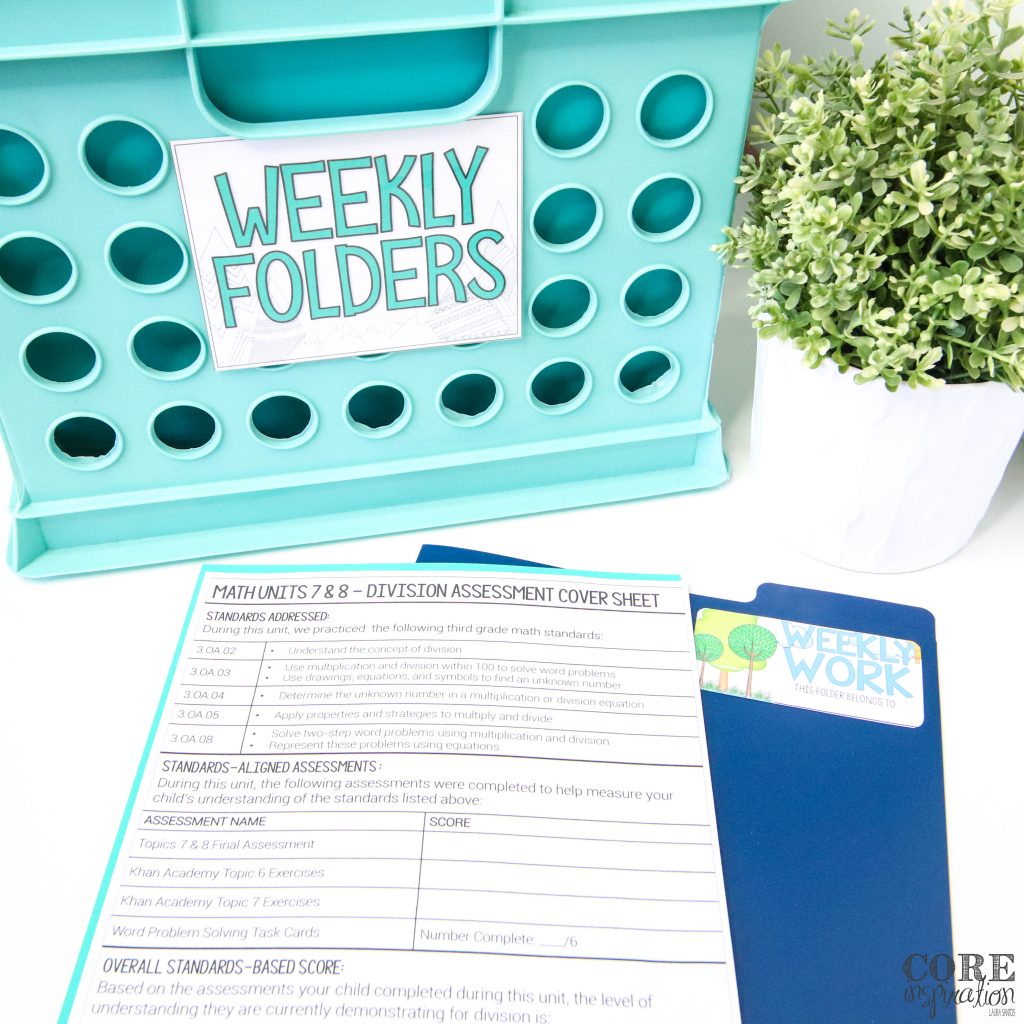
When sending all the work from a unit home, attach a cover sheet that gives parents an overview of the standards taught during the unit, and how each piece connects to help you determine an overall score for the unit. This helps eliminate any surprises when report cards go home at the end of the quarter/trimester or when you are meeting for parent-teacher conferences.
Simplifying the standards listed on your cover sheet makes these cover sheets an even stronger communication tool.
Online learning tools are a fabulous way to differentiate for your students, but logging in to different learning platforms to see their child’s progress is pretty time-consuming for parents. I’m sure down the line, someone will develop a tool that helps us display scores for work across several digital platforms, but in the meantime I like to provide a printable tracker to make it easier for each family to see scores for their student’s digital work.
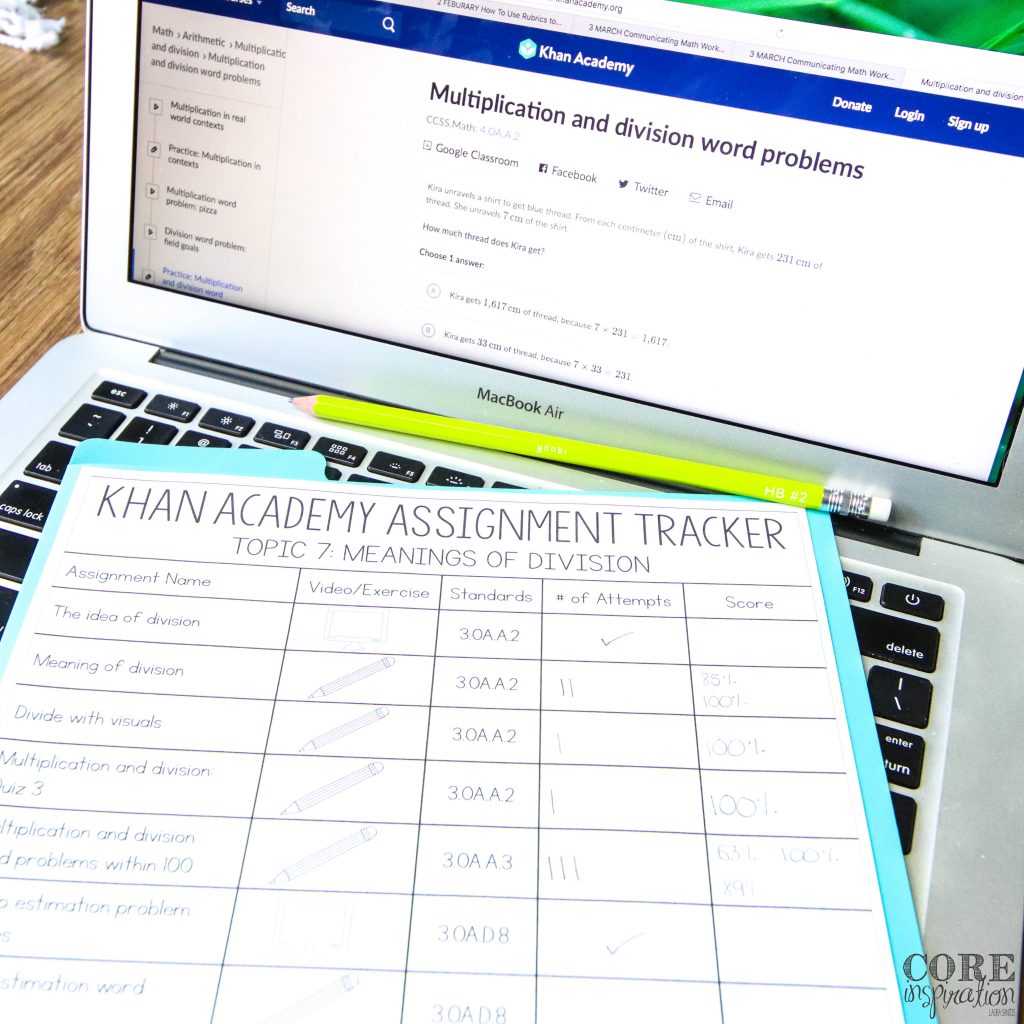
Including this tracker with the end-of-unit portfolio you send home paints a more complete picture of the work students have completed in class during the unit.
Score activities like problem solving tasks and project based learning with a rubric so students and parents have an explanation for the score given to the multi-step learning activities.
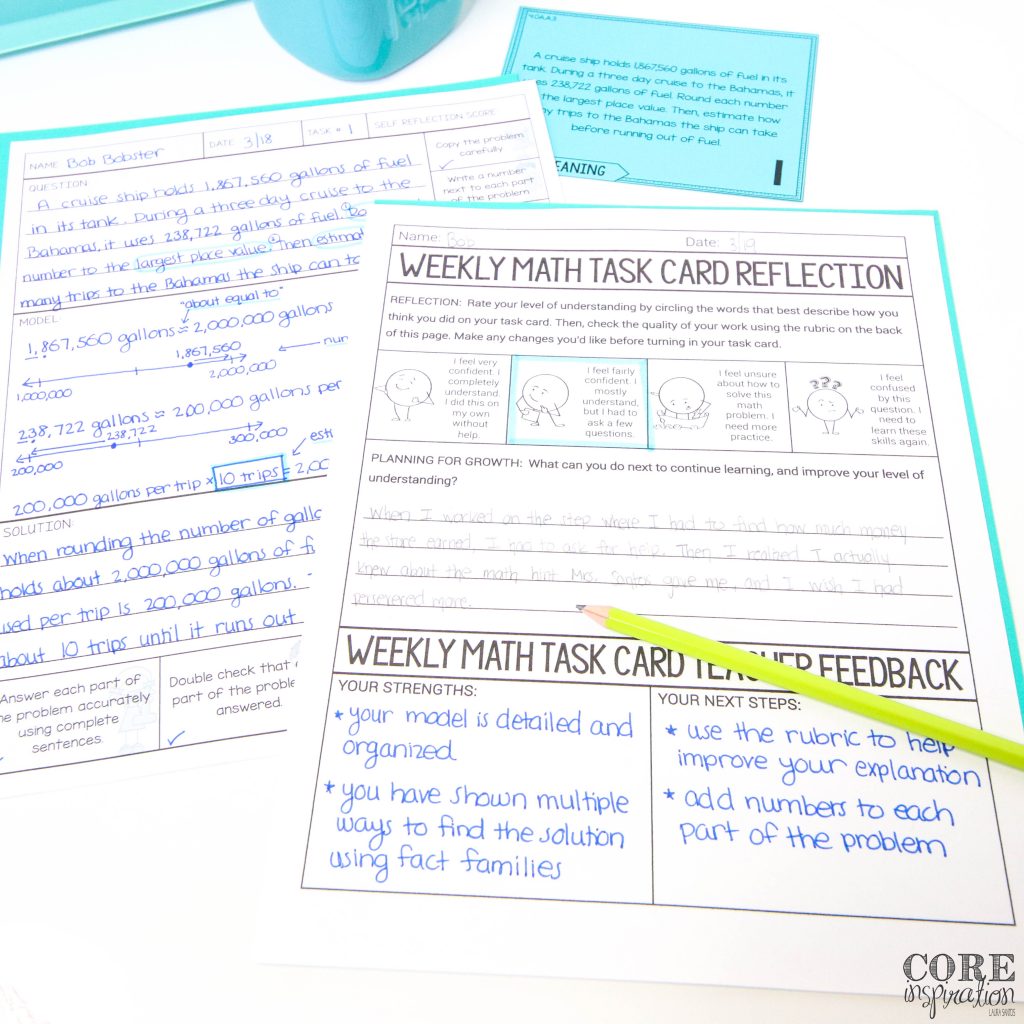
The beauty of rubrics is they can be used as a goal-setting and reflection tool for students and they make it very efficient for you to provide timely yet detailed feedback to students. You can grab the rubric and reflection template shown above for free by submitting the form below.
Sharing student reflections with their grown-ups is another way to paint a clear picture of student progress. This helps families gain more insight about how their child feels about the work they’ve completed and their plan for continued growth.
If you notice there are common skills students need support with during a particular part of workshop, create a reflection sheet that allows you to deliver feedback about the skills they are developing and space for them to reflect on the feedback you’ve shared.
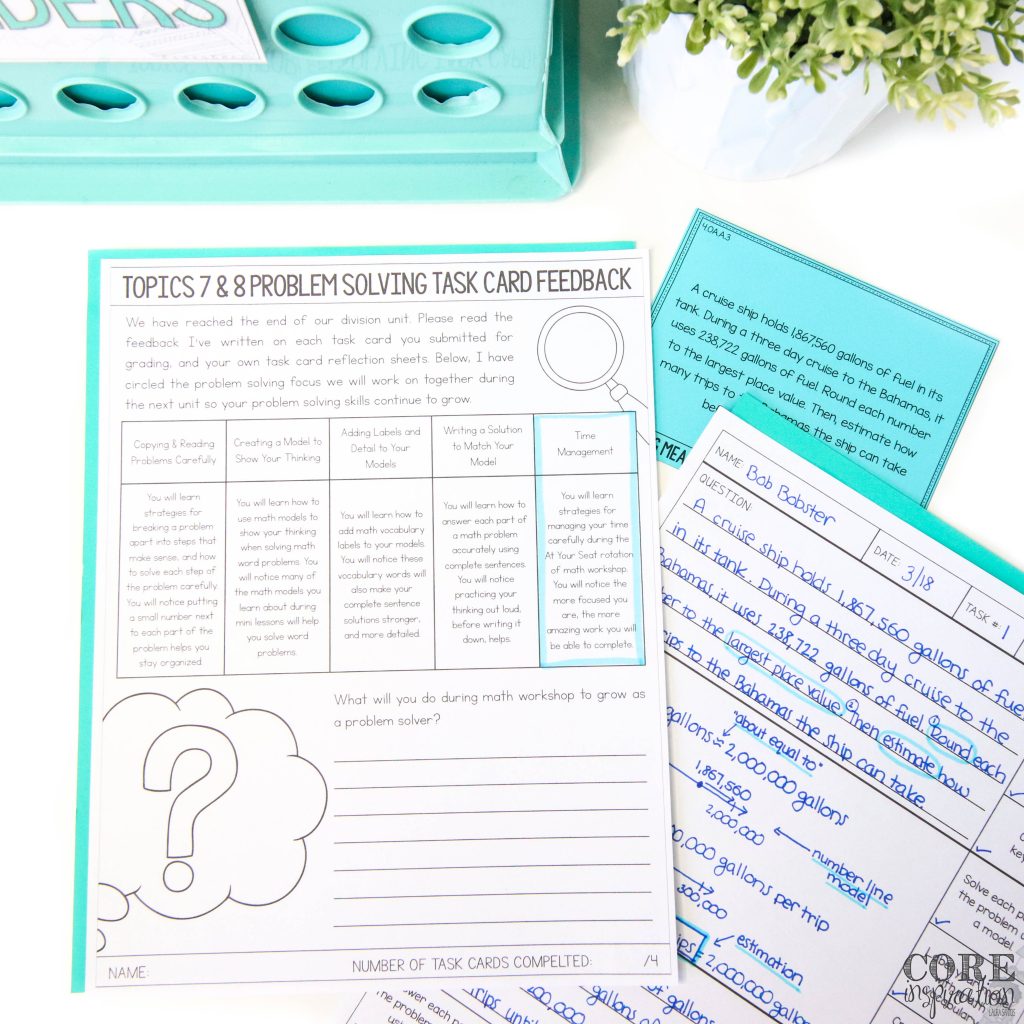
For example, when my students work on our complex word problem solving tasks, I notice they require additional support in the same five common areas from year to year.
Rather than feeling flustered about supporting students as they develop these important problem solving skills, I created a feedback/reflection sheet that helps me communicate what students need to focus on, and helps me get insight on their thoughts and plans related to those developing skills.
The ability to reflect on learning and set goals for growth is a process that needs lots of modeling, teacher think-aloud, and student practice. Don’t feel discouraged if student reflections in the early months of the school year seem shallow or inaccurate. Keep practicing and scheduling time for reflection and goal setting consistently.
Using these tools together helps you to be proactive so you can:
If you’re interested in a fully editable version of the tools I’ve shared above, my Math Workshop Student Feedback, Reflection, and Parent Communication Tools is a perfect resource to get you started. Enjoy!
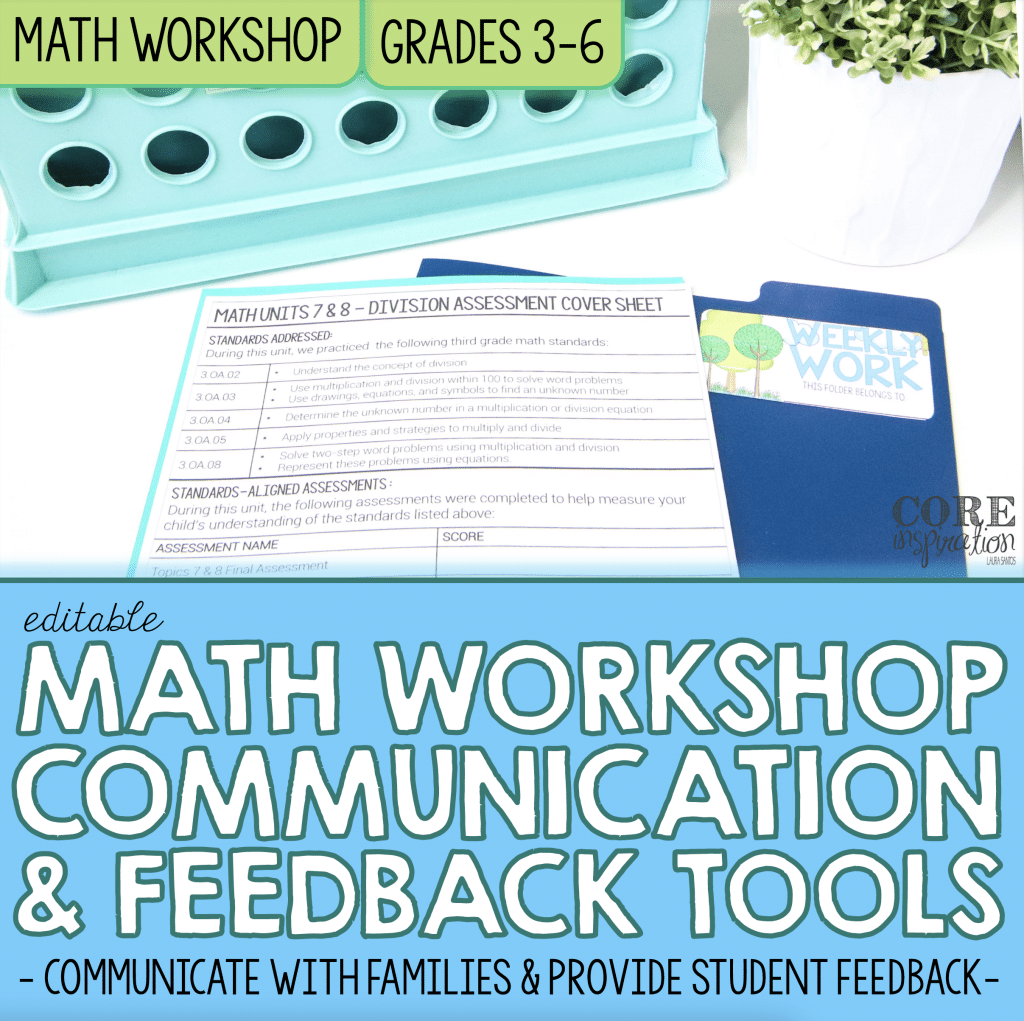

I’ve been an elementary teacher for ten years, and love sharing tips and resources that make differentiated learning more manageable for you. Thank you for visiting.
Learn More
Dropping by with weekly tips, classroom strategies, and free content created with you in mind.
Join me and other 2nd through 4th grade educators in the Teaching with Core Inspiration Facebook Group. This is a place to collaborate, ask questions, and learn how teachers like you are using Core Inspiration resources in their classrooms. Hope to see you there!
© 2024 Core Inspiration ∙ Website by KristenDoyle.co